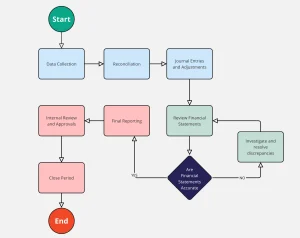
Manageing your money can seem intimidating, but there are several simple strategies and tips you can use to get on track. Doing so will give you increased confidence and give you control of your finances.
Budgeting is an essential financial management technique that can help you meet expenses, stay out of debt and save for the future. Start by taking stock of your current spending patterns.
Make a Budget
Budgeting and money management techniques can help you stay within your means, plan for financial goals and reduce stress. Whether you need to save for a vacation, pay off debt or improve your credit score, there are easy steps you can take to get started.
Start by making a list of all your monthly expenses, both fixed costs like rent or mortgage payments and variable expenses like gas and food. Then calculate the average amount spent in each category.
Next, create a category for “Savings.” Savings can help you manage emergencies and build an emergency fund. Ideally, aim to have enough savings to cover three to six months’ worth of expenses.
If you’re new to budgeting, it may take a few months before you feel confident with the process. But the effort will be well worth it in order to improve your finances and ensure you reach your financial objectives.
Track Your Expenses
One of the most effective budgeting and money management techniques is tracking your expenses. Whether it’s with pen and paper, an app, or a spreadsheet, knowing where your money goes helps you better manage it and save more.
Starting your budgeting journey requires segmenting your spending into needs and wants. Doing this will enable you to prioritize expenses and identify areas where costs can be cut back for savings or debt repayment.
Next, divide your expenses into fixed and variable categories. This will enable you to identify how much of your income goes toward mortgage or rent payment, insurance premiums and other fixed expenses.
Tracking your spending with a cash envelope system is an effective way to stay on top of it. By monitoring specific purchases such as groceries, entertainment or restaurants, you’ll be able to recognize when you’re overspending and gain more control over your expenses.
Set Savings Goals
Savings goals are an integral component of successful budgeting and money management plans. Whether you’re saving for a down payment on your dream home, vacation or retirement, setting savings targets helps keep you motivated while tracking progress toward them.
When setting savings goals, consider what matters most to you. For instance, paying off debt first may help free up more funds for a house or vacation later on.
Once you identify your goals, determine how much money needs to be saved each month to reach them. Utilize a spreadsheet or app for tracking expenses and savings.
Next, create timelines for your financial objectives to help keep you accountable and motivated. This could range from saving for a trip in one year to having the down payment on a house ready in two years – whatever works best for you!
Pay Down Debt
One of the most efficient ways to manage your finances is through budgeting and money management techniques. These include tracking spending, setting savings goals and creating a strategy for debt repayment.
No matter if you are facing student loan debt, credit card balances or mortgage payments, there are some simple strategies that can help keep you on track.
Begin by tallying up all your debts. Create a comprehensive list of each debt type, remaining balance and interest rate.
Next, prioritize paying off debts with the highest interest rates first using a strategy called a debt avalanche. This popular method saves more money in interest over time than using the debt snowball method; however, it will take longer to eliminate all your outstanding debt obligations.
Other strategies for debt reduction include cutting expenses and increasing income through side hustles, asking for a raise, changing jobs or freelance work. Not only will these activities boost your monthly earnings but also give you extra money to put towards paying off debts.



